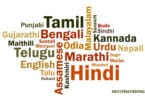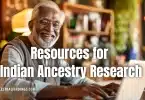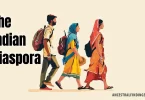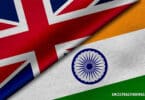The Partition of India in 1947 was one of the most transformative and tragic events in South Asian history. It marked the division of British India into two independent dominions—India and Pakistan. This political event reshaped borders and forced one of the largest mass migrations in human history. An estimated 10 to 15 million people were displaced as they fled across new boundaries based on religious identity, with Hindus and Sikhs moving to India and Muslims migrating to Pakistan. This upheaval created challenges affecting genealogical research today, as records were lost, families were torn apart, and entire communities were displaced.
The Historical Context of Partition
In the years leading up to 1947, British India was grappling with mounting tensions between religious communities, particularly between Hindus and Muslims. As the Indian independence movement gained momentum in the early 20th century, debates over how to divide power in a post-colonial India intensified. The British decision to leave India coincided with rising demands from the Muslim League, led by Muhammad Ali Jinnah, for a separate Muslim state. The Congress Party, representing a broader secular vision of India, led by leaders such as Mahatma Gandhi and Jawaharlal Nehru, resisted this idea.
The decision to partition India was finalized in August 1947, resulting in the creation of the two nations—India and Pakistan (which included present-day Bangladesh). The borders, hastily drawn by British lawyer Sir Cyril Radcliffe, were established with a limited understanding of the geographical and cultural nuances of the region. As a result, communities that had coexisted for centuries were suddenly divided. The violence that erupted during Partition left deep scars, with hundreds of thousands killed in communal riots and millions displaced in search of safety.
Key Challenges for Genealogical Research During Partition
Disrupted Family Records: During the mass migrations, many people abandoned their homes, leaving behind property deeds, family records, and community documentation. Local government offices, which housed civil registrations, birth certificates, and land records, were often abandoned or destroyed. The British administrative system, which was already faltering under the strain of decolonization, struggled to manage the paperwork of millions of refugees.
Lost Connections Across Borders: Families who had lived in the same village for generations were suddenly divided by a new international boundary. Many lost touch with relatives who ended up on the other side of the border, leaving gaps in family history. Some changed names or adopted new identities to survive the violence or adjust to life in a new country.
Absence of Institutional Records: Religious institutions, such as temples, mosques, gurdwaras, and churches, often held family records, but many were abandoned during Partition. Community leaders who safeguarded these documents were sometimes killed or fled, taking the knowledge with them. For many families, oral histories became the primary way to pass down family stories, as written records were no longer accessible.
Finding Lost Family Records
Despite these challenges, several archives and resources hold valuable records for those researching their family history from the Partition period:
Partition Migration Records: Both India and Pakistan’s national archives contain some records of the migration, including refugee registration forms, property claims, and records of resettlement. These documents are particularly helpful for tracing land ownership, migration patterns, and family movements during this chaotic time.
Oral Histories: Given the loss of formal records, oral histories have become essential for genealogists. Many families passed down stories of the Partition and migration through generations. While often anecdotal, these personal accounts can provide critical information about family names, occupations, and places of origin that might not be available in written form.
Refugee Camp Records: After Partition, both India and Pakistan set up refugee camps to accommodate displaced people. These camps documented the arrival and departure of refugees and their basic details like names, ages, and family sizes. Accessing records from these camps can provide clues about where a family lived during the resettlement period.
Land Records and Property Claims: In the years following Partition, many displaced families filed property claims with the new governments to retrieve land they had left behind. Both India and Pakistan maintain archives of these claims, which can help trace family properties and their movements.
Historical Resources and Archives
Several archives house records from the Partition period, which can be valuable for genealogical research:
• The National Archives of India: Located in New Delhi, these archives hold many records from the Partition, including refugee claims, property deeds, and government correspondence.
• The Punjab State Archives: Since Punjab was divided during Partition, these archives contain crucial records of displaced families and properties that were either lost or redistributed during the migration.
• The National Archives of Pakistan: This repository contains migration records, as well as lists of refugee resettlements, property disputes, and citizenship applications.
In addition, many academic institutions in both India and Pakistan have undertaken projects to preserve and digitize Partition-related documents, making it easier for genealogists to access these records from abroad.
Strategies for Reconnecting Across Borders
The political divide between India and Pakistan has made it challenging for families to reconnect. However, advances in technology and collaboration between researchers on both sides have opened new doors:
Social Media and Online Forums: Platforms like Facebook, Instagram and genealogy-specific sites like Ancestry.com have groups and forums dedicated to helping people reconnect with relatives who may have been separated during Partition. These platforms allow users to search for lost relatives and join communities that trace family connections.
Genealogical Societies: Indian and Pakistani genealogical societies often specialize in helping families affected by Partition. These organizations work with archives, government offices, and local historians to compile family trees and assist in reconnecting families across borders.
DNA Testing: DNA testing services such as 23andMe and AncestryDNA have become increasingly popular for genealogical research. They allow people to find relatives based on shared DNA, providing an opportunity for families separated by Partition to reunite across borders.
Preserving Family Stories for Future Generations
In addition to locating official records, preserving oral histories is a crucial way to keep the memories of Partition alive. Collecting these stories from older generations who lived through the experience ensures that Partition’s emotional and personal aspects are passed down, even if formal records are missing.
Many organizations are now collecting and archiving oral histories of Partition survivors. Projects like the 1947 Partition Archive encourage families to record and preserve these stories, contributing to a wider understanding of how Partition shaped individual lives.
The Partition of India created deep divisions, not only geographically but also within families. This event presents a unique challenge for genealogists: piecing together fragmented records, lost histories, and displaced family members. However, with the right tools, resources, and dedication, it’s possible to reconnect with the past, finding stories and records that once seemed lost. The impact of Partition on family history is undeniable, but the available tools offer hope in the search for lost relatives and family heritage.
Read More:
“The Great Partition: The Making of India and Pakistan” by Yasmin Khan
This book offers a detailed account of the Partition’s causes, events, and consequences. It focuses on the experiences of ordinary people and the violence that accompanied the division of India.
“The 1947 Partition of British India: Forced Migration and Its Reverberations”
This book includes chapters from experts in various fields, providing a comprehensive understanding of the Partition’s long-term impact on South Asia and the forced migration that resulted from it.
This book explores the political and social history behind the Partition, focusing on the divisions that led to the creation of Pakistan and India.
“The Partition of India” by Ian Talbot and Gurharpal Singh
A comprehensive volume that covers the lead-up to Partition, the event itself, and the migration and resettlement that followed. This book is well-researched and widely regarded as one of the best academic studies on the subject.






